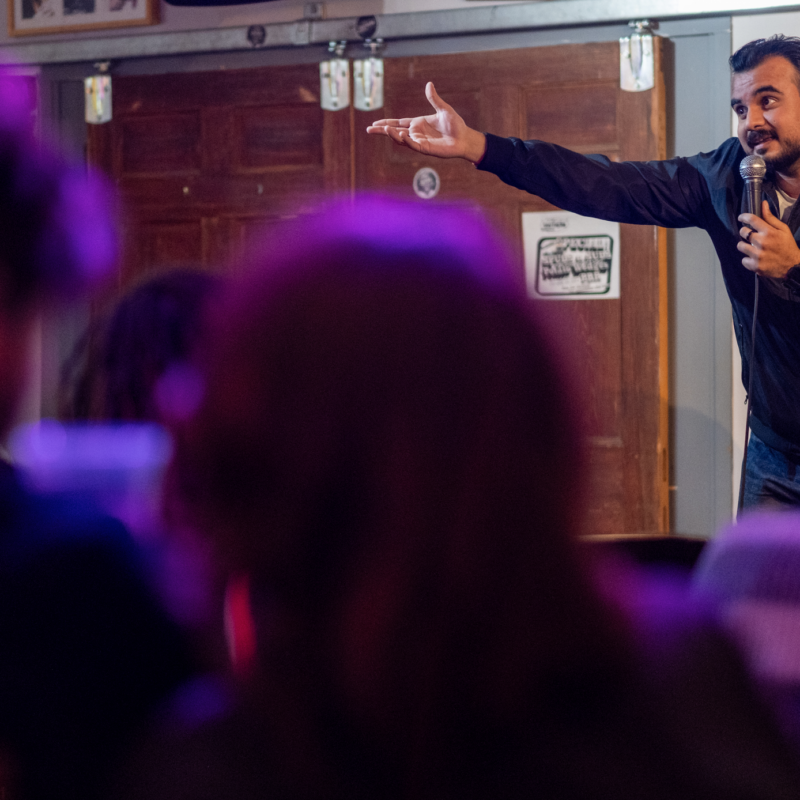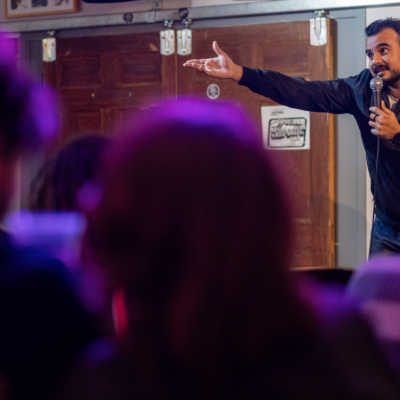The Nazis at the Terezin concentration camp took a cruel sort of pleasure in hearing the motley chorus of Jews sing a dramatic piece of music about death. The Jewish prisoners, for their part, relished the opportunity to sing a passionate work to their oppressors about what awaits sinners come judgment day. Both emotions were well-represented in the same piece of music: The requiem mass Giuseppe Verdi wrote as a tribute to a fallen friend.
|
Judy Gary conducts The Virginia Consort Festival Chorus in a performance of Verdi’s Requiem this week, to honor the subversive, emotionally-charged performances of Verdi’s work at the Terezin “show camp.” |
The fascinating context (more on it later) will frame the Virginia Consort’s performance this week when it welcomes the New York-based artist Fred Terna—who was born in 1923 and lost his family in the Holocaust—to lecture on one of the emotionally charged Requiem performances he caught while interned as a teenager in Terezin. “He’s 88 years old and he has a great sense of humor,” says Judy Gary, conductor of the local chamber chorus. “He stared at the belly of the beast—he’s seen the worst there is.”
This is what he and others saw. When Czech lands were occupied by Nazi Germany in the 1940s, the fortress town of Terezin became a “model city” where Nazis sent elderly and famous Czeckoslovakian Jews, Nazis claimed, to protect them from the stresses of war. But in fact, the ongoing war shielded the truth that Terezin was a waypoint to Auschwitz and other more deadly camps, itself an unforgiving ghetto that claimed the lives of nearly 100,000—including 15,000 children. “They wanted to show that they treated the Jews nicely, but of course they weren’t,” says Gary. “It was a show camp.”
Among the talented prisoners there was the Czechoslovakian pianist and conductor Rafael Schächter, who secretly formed a chorus to perform Verdi’s Requiem. This Schächter accomplished with a single score and piano, and a chorus of roughly 150 that had spent hours in hard labor. Meanwhile, members of the choir would be taken to the chambers or shipped off, and he would have to swiftly replace the fallen. “It’s grisly to the point of being difficult to believe,” says Gary.
When the Nazi leadership found out about the chorus, they urged Schächter on, taking dark delight in watching the Jews sing their own requiem. But that wasn’t the whole story. “What’s so interesting about the Requiem is that it can speak to non-Christians,” says Gary. For this piece Verdi used the requiem mass, which includes a text called the “Dies Irae,” “a very compelling poem about what happens to evil people on judgment day,” says Gary.
“What it allowed the Jews to do was basically to tell the Nazis, ‘go to hell.’ And they did so with great fervor.”
Gary also says that Verdi’s personal history informs the real emotion in the piece. “When Verdi was young, he lost two little children and a wife—who he adored—all before the time he was 28 years old. So he had been through his own version of turmoil and hell. He obviously knew about grieving and grief, and fear and horrible loss. There’s a very powerful similarity there—it’s a very human requiem,” says Gary.
And even with a full orchestra and scores to go around, Verdi’s Requiem is a challenging piece of music. “Our challenge is that we can’t use all the instruments Verdi calls for. His chorus averaged 600 people, and I don’t know if you’ve been in Cabell Hall,” says Gary. The Consort will also welcome four soloists, including an up-and-coming soprano Talise Trevigne, who has been called “the buzz of the opera world.”
For its Midseason Masterworks Performance, the Virginia Consort Festival Chorus performs Verdi’s Requiem on Sunday, March 6 at 3:30pm at Old Cabell Hall. Terezin survivor Fred Terna gives a preconcert lecture at 1:30pm. Tickets are available at Greenberry’s on Barracks Road, New Dominion Books and at both Market Street Wine Shops. Visit www.virginiaconsort.org for more information.
/Photos-for-TV_201103-1.jpg)





